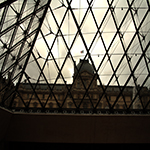Euroacademia Conferences
 Europe Inside-Out: Europe and Europeanness Exposed to Plural Observers (9th Edition) April 24 - 25, 2020
Europe Inside-Out: Europe and Europeanness Exposed to Plural Observers (9th Edition) April 24 - 25, 2020 Identities and Identifications: Politicized Uses of Collective Identities (9th Edition) June 12 - 13, 2020
Identities and Identifications: Politicized Uses of Collective Identities (9th Edition) June 12 - 13, 2020 8th Forum of Critical Studies: Asking Big Questions Again January 24 - 25, 2020
8th Forum of Critical Studies: Asking Big Questions Again January 24 - 25, 2020 Re-Inventing Eastern Europe (7th Edition) December 13 - 14, 2019
Re-Inventing Eastern Europe (7th Edition) December 13 - 14, 2019 The European Union and the Politicization of Europe (8th Edition) October 25 - 26, 2019
The European Union and the Politicization of Europe (8th Edition) October 25 - 26, 2019 Identities and Identifications: Politicized Uses of Collective Identities (8th Edition) June 28 - 29, 2019
Identities and Identifications: Politicized Uses of Collective Identities (8th Edition) June 28 - 29, 2019 The European Union and the Politicization of Europe (7th Edition) January 25 - 26, 2019
The European Union and the Politicization of Europe (7th Edition) January 25 - 26, 2019 7th Forum of Critical Studies: Asking Big Questions Again November 23 - 24, 2018
7th Forum of Critical Studies: Asking Big Questions Again November 23 - 24, 2018 Europe Inside-Out: Europe and Europeanness Exposed to Plural Observers (8th Edition) September 28 - 30, 2018
Europe Inside-Out: Europe and Europeanness Exposed to Plural Observers (8th Edition) September 28 - 30, 2018 Identities and Identifications: Politicized Uses of Collective Identities (7th Edition) June 14 - 15, 2018
Identities and Identifications: Politicized Uses of Collective Identities (7th Edition) June 14 - 15, 2018
Louvre Abu Dhabi: a Space of Economic, Diplomatic, and Sociocultural Action
-
-

-
Presentation speakers
- Viviane Gautier-Jacquet, Université de Montréal, Canada
- Download presentation
Abstract:
According to the first clause of the intergovernmental Agreement between France and the United Arabs Emirates, the Louvre Abu Dhabi museum, along with the works of the French national museums when deployed internationally, will have the diplomatic mission to contribute to the dialogue between two archetypes, the Orient and the Occident. The Louvre that participated in the national cohesion of post-revolutionary France seems to promote, particularly with the elaboration of the Louvre Abu Dhabi, the Orient-Occident cohesion considered necessary following the upheavals of the last decades. In this regard, art is used for its symbolic value rather than for its singular artistic one. Each work of art’s individual power to communicate, when housed in the museum, is superseded to the profit of political agenda, which uses the collections sometimes to support national unity, sometimes to support international unity. The promoting of dialogue between the Orient and the Occident, that is, “each side respecting the cultural values of the other”, supports the respect of Alterity while regulating the international community since the future Emirian museum is developed under French scientific expertise. Does communication really exist in museums? No. And does communication really exist between institutionally reified cultures? No. This communication seeks to expose that the national museum is not a neutral platform showing art, but rather a diplomatic institution; it seeks to expose the ideological constructions involved, more or less subliminally, in the Louvre Abu Dhabi Agreement. And, while considering the limits of multiculturalism, it wishes to consider substituting the concept of Alterity that refers to a pseudo essentialism of self and the other, for the one of “Altruity”, proposed by Roger Somé, which refers to fellow men as distinct, subject of encounter rather than object of study. -
Related Presentations

The Western Jewish Communities as Perceived by Polish Jews in the Interwar Period (1918 - 1939)
- Miriam Freilich

EU - LEX Kosovo: Alterity Shaping Capability Questioned?
- Nicasia Picciano
















